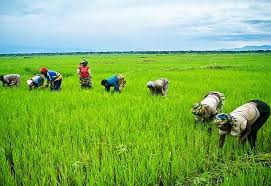By Ndey Sowe
The Government of Japan has approved a grant of one hundred and twelve million, six hundred eighty-six thousand and forty-eight dalasi (D112,686,048) to support The Gambia’s “Agricultural Land Development Project for Improving Rice Production.”
In a dispatch shared by the Ministry of Foreign Affairs, International Cooperation and Gambians Abroad, the government said the grant was secured through the Japanese Food Assistance Counterpart Fund. The initiative aims to improve agricultural productivity by developing arable land, building irrigation infrastructure, and supporting interventions that strengthen national food security.
According to the ministry, the project aligns with The Gambia’s broader development goals, particularly efforts to achieve self-sufficiency in rice production.
“The Government of The Gambia deeply values its longstanding partnership with Japan and extends heartfelt appreciation to the Government and people of Japan for their continued support and contribution to the country’s development,” the ministry stated.
The partnership is described as a testament to both countries’ commitment to promoting sustainable economic growth and social development.
Project Objectives:
The Agricultural Land Development Project seeks to boost local rice production through pump-irrigated farming, reduce dependency on rice imports, and prepare a comprehensive agricultural development framework. This will be based on ongoing studies and enhanced agricultural experimentation.
Japan remains one of The Gambia’s most significant Official Development Assistance (ODA) donors. Its support has consistently focused on improving rural livelihoods through initiatives in agriculture, fisheries, water supply, and food aid.
The Japanese Ambassador to The Gambia, H.E. ARAI Tatsuo, reaffirmed Japan’s commitment to cooperation by announcing plans to dispatch an agricultural expert to conduct a comprehensive study of The Gambia’s agricultural sector.
Beyond agriculture, Japan’s assistance extends to education, healthcare, and the provision of clean drinking water, particularly targeting rural communities.
This latest project supports The Gambia’s National Development Plan, which prioritizes sustainable transitions by developing pathways to process agricultural products for local consumption and export. The plan aims to enhance food security, create employment, and help manage inflation.
Japan’s interventions have had a significant positive impact on The Gambia’s economic development, raising living standards in rural communities and reinforcing bilateral ties between the two nations.
Over the years, the Gambian government, with Japanese food aid, uses a counterpart fund to address food security, stabilise prices, and promote socio-economic development, with funds generated from the food assistance earmarked for projects in key sectors like health, education, and social services.
freedom of expression and press freedom in The Gambia.


















